- Home
- Robert Jordan
Conan the Triumphant Page 4
Conan the Triumphant Read online
Page 4
A flower-girl, screeching at the giant apparition wielding bloody steel, leaped out of his way; a fruit peddler failed to move fast enough and caromed off Conan’s chest, oranges exploding from his basket in all directions. The peddler’s imprecations, half for the huge Cimmerian and half for the apprentices scurrying to steal his scattered fruit, followed Conan down the crowded street, but he did not slow his headlong charge. Bearers, scrambling to move from his path, overturned their sedan chairs, spilling cursing nobles into the street. Merchants in voluminous robes and serving girls shopping for their masters’ kitchens scattered screaming and shouting before him.
Then Timeon’s palace was in sight. As Conan pounded up the broad alabaster stairs, the two guards he had set on the columned portico rushed forward, arrows nocked, eyes searching the street for what pursued him.
“The door!” he roared at them. “Erlik blast your hides! Open the door!”
Hurriedly they leaped to swing open one of the massive bronze doors, worked with Timeon’s family crest, and Conan rushed through without slowing.
He was met in the broad entry hall by Machaon and half a score of the company, their boots clattering on polished marble tiles. Varying degrees of undress and more than one mug clutched in a fist showed they had been rousted from their rest by his shouts, but all had weapons in hand.
“What happens?” Machaon demanded. “We heard your shouts, and—”
Conan cut him off. “Where is Timeon? Have you seen him since arriving?”
“He’s upstairs with his new leman,” Machaon replied. “What—”
Spinning, Conan raced up the nearest stairs, a curving sweep of alabaster that stood without visible support. Pausing only an instant Machaon and the others followed at a dead run. At the door to Timeon’s bedchamber, tall and carved with improbable beasts, Conan did not pause. He slammed open the door with a shoulder and rushed in.
Baron Timeon leaped from his tall-posted bed with a startled cry, his round belly bouncing, and snatched up a long robe of red brocade. On the bed a slender, naked girl clutched the coverlet to her small yet shapely breasts. Ducking her head, she peered shyly at Conan through a veil of long, silky black hair that hung to her waist.
“What is the meaning of this?” Timeon demanded, furiously belting the robe about his girth. After the current fashion of the nobility, he wore a small, triangular beard on the point of his chin. On his moon face, with his found, protuberant eyes, it made him look like a fat goat. An angry goat, now. “I demand an answer immediately! Bursting into my chambers with sword drawn.” He peered suddenly at the blade in Conan’s hand. “Blood!” he gasped, staggering. He flung his arms around one of the thick intricately carved posts of his bed as if to hold himself erect, or perhaps to hide himself behind. “Are we attacked? You must hold them off till I escape. That is, I’ll ride for aid. Hold them, and there’ll be gold for all of you.”
“There’s no attack, Lord Timeon,” Conan said hastily “At least, not here. But I was attacked in the city.”
Timeon glanced at the girl. He seemed to realize he had been far from heroic before her. Straightening abruptly, he tugged at his robe as if adjusting it, smoothed his thinning hair. “Your squabbles with the refuse of Ianthe have no interest for me. And my pretty Tivia is too delicate a blossom to be frightened with your tales of alley brawls, and your gory blade. Leave, and I will try to forget your ill manners.”
“Lord Timeon,” Conan said with forced patience, “does someone mean you harm, well might they try to put me out of the way first. Count Tiberio is dead this last night at an assassin’s hand. I will put guards at your door and in the garden beneath your windows.”
The plump noble’s water blue eyes darted to the girl again. “You will do no such thing. Tiberio took his own life, so I heard. And as for assassins —” he strode to the table where his sword lay, slung the scabbard into a corner and struck a pose with the weapon in hand—“should any manage to get past your vigilance, I will deal with them myself. Now leave me. I have …” he leered at the slender girl who still attempted unsuccessfully to cover herself, “matters to attend to.”
Reluctantly Conan bowed himself from the room. The instant the door was shut behind him, he growled, “That tainted sack of suet. An old woman with a switch could beat him through every corridor of this palace.”
“What are we to do?” Machaon asked. “If he refuses guards … .”
“We guard him anyway,” Conan snorted. “He can take all the chances he wants to with us to protect him, and he will so long as there’s a woman to impress, but we cannot afford to let him die. Put two men in the garden, where he can’t see them from his windows. And one at either end of this hall, around the corners where they can hide if Timeon comes out, but where they can keep an eye on his door.”
“I’ll see to it.” The scarred warrior paused. “What’s that you’re carrying?”
Conan realized he still had the bronze, wrapped in its sack, beneath his arm. He had forgotten it in the mad rush to get to Timeon. Now he wondered. If the men who had attacked him had not been trying to open a way to the baron—and it now seemed they had not—perhaps they had been after the statuette. After all, two others had been willing to kill, and die, for it. And they had thought it worth gold. It seemed best to find out the why of it before giving Machaon a gift that might bring men seeking his life.
“Just a thing I bought in the city,” he said. “Post those guards immediately. I don’t want to take chances, in case I was right the first time.”
“First time?” Machaon echoed, but Conan was already striding away.
The room Conan had been given was spacious, but what Timeon thought suitable for a mercenary captain. The tapestries on the walls were of the second quality only, the lamps were polished pewter and brass rather than silver or gold, and the floor was plain red tiles. Two arched windows looked out on the garden, four floors below, but there was no balcony. Still, the mattress on the big bed was goose down, and the tables and chairs, if plain varnished wood, were sturdy enough for him to be comfortable with, unlike the frail, gilded pieces in the rooms for noble guests.
He tossed the rough sacking aside and set the bronze on a table. A malevolent piece, it seemed almost alive. Alive and ready to rend and tear. The man who had made it was a master. And steeped in abomination, Conan was sure, for otherwise he could not have infused so much evil into his creation.
Drawing his dagger, he tapped the hilt against the figure. It was not hollow; there could be no gems hidden within. Nor did it have the feel or heft of bronze layered over gold, though who would have gone to that much trouble, or why, he could not imagine.
A knock came at the door while he was still frowning at the horned shape, attempting to divine its secret. He hesitated, then covered it with the sack before going to the door. It was Narus.
“There’s a wench asking for you,” the hollow-cheeked man said. “Dressed like a doxy, but her face scrubbed like a temple virgin, and pretty enough to be either. Says her name is Julia.”
“I know her,” Conan said, smiling.
Narus’ mournful expression did not change, but then it seldom did. “A gold to a silver there’s trouble in this one, Cimmerian. Came to the front and demanded entrance, as arrogant as a princess of the realm. When I sent her around back, she tried to tell me her lineage. Claims she’s noble born. The times are ill for dallying with such.”
“Take her to Fabio,” Conan laughed. “She’s his new pot girl. Tell him to put her peeling turnips for the stew.”
“A pleasure,” Narus said, with a brief flicker of a smile, “after the way her tongue scourged me.”
At least one thing had gone well with the day, Conan thought as he turned from the door. Then his eye fell on the sacking covered bronze on the table, and his moment of jollity faded. But there were other matters yet to be plumbed, and the feeling at the back of his neck told him there would be deadly danger in doing so.
4
&nbs
p; The sly-faced man who called himself Galbro wandered nervously around the dusty room where he had been told to wait. Two great stuffed eagles on perches were the only decoration, the amber beads that had replaced their eyes seeming to glare more fiercely than ever any living eagle’s eyes had. The lone furnishings was the long table supporting the leather bag in which he had brought what he had to sell. He did not like these meetings; despite all the silver and gold they put in his purse, he did not like the woman who gave him the coin. Her name was unknown to him, and he did not want to know it, nor anything else about her. Knowledge of her would be dangerous.
Yet he knew it was not the woman alone who made him pace this time. That man. A northlander, Urian said he was. From whencever he came, he had slain five of Galbro’s best and walked away without so much as a scratch. That had never happened before, or at least not since he came to Ophir. It was an ill omen. For the first time in long years he wished that he was back in Zingara, back in the thieves’ warren of alleys that ran along the docks of Kordava. And that was foolish, for if he was not shortened a head by the guard, his throat would be slit by the denizens of those same alleys before he saw a single nightfall. There were penalties attached to playing both sides in a game, especially when both sides discovered that you cheated.
A light footstep brough him alert. She stepped into the room, and a shiver passed through him. No part of her but her eyes, dark and devoid of softness, was visible. A silver cloak that brushed the floor was gathered close about her. A dark, opaque veil covered the lower half of her face, and her hair was hidden by a white silk headcloth, held by a ruby pin, the stone as large as the last joint of his thumb.
The ruby invoked no shreds of greed within him. Nothing about her brought any feeling to him except fear. He hated that, fearing a woman, but at least her coin was plentiful. His taste for that was all the greed he dared allow himself with her.
With a start he realized she was waiting for him to speak. Wetting his lips—why did they dry so in her presence?—he opened his bag, spread his offerings on the table. “As you can see, my lady, I have much this time. Very valuable.”
One pale, slender hand extended from the cloak to finger what he had brought, object by object. The brass plaque, worked with the head of the demon that so fascinated her, was thrust contemptuously aside. He schooled his face not to wince. Leandros had labored hard on that, but of late she accepted few of the Corinthian’s forgeries. Three fragments of manuscript, tattered and torn, she studied carefully, then lay to one side. Her fingers paused over a clay head, so worn with age he had not been certain it was meant to be the creature she wanted. She put it with the parchments.
“Two gold pieces,” she said quietly when she was done. “One for the head, one for the codexes. They but duplicate what I already have.”
A gold for the head was good—he had hoped for no more than coppers at best—but he had expected two for each of the manuscripts. “But, my lady,” he whined, “I can but bring you what I find. I cannot read such script, or know if you already possess it. You know not what difficulties I face, what expenses, in your service. Five of my men slain. Coin to be paid for thefts. Men to be—”
“Five men dead?” Her voice was a whipcrack across his back, though she had not raised it.
He squirmed beneath her gaze; sweat rolled down his face. This cold woman had little tolerance for failure, he knew, and less for men who drew attention to themselves, as by leaving corpses strewn in the streets. He had Baraca as example for that. The Kothian had been found hanging by his feet with his skin neatly removed, yet still alive. For a few agonized hours of screaming.
“What have you been into, Galbro,” she continued, her low words stabbing like daggers, “to lose five men?”
“Naught, my lady. A private matter. I should not have mentioned it, my lady. Forgive me, please.”
“Fool! Your lies are transparent. Know that the god I serve, and whom you serve through me, gives me the power of pain.” She spoke words that his brain did not want to comprehend; her hand traced a figure in the air between them.
Blinding light flashed behind his eyes, and agony filled him, every muscle in his body writhing and knotting. Helpless, he fell, quivering in every limb, bending into a backbreaking arch till only his head and drumming heels touched the floor. He tried to shriek, but shrieks could not pass the frozen cords of his throat, nor even breath. Blackness veiled his eyes, and he found a core within him that cried out for death, for anything to escape the all-consuming pain.
Abruptly the torment melted away, and he collapsed in a sobbing heap.
“Not even death can save you,” she whispered, “for death is one of the realms of my master. Behold!” Again she spoke words that seared his mind.
He peered up at her pleadingly, tried to beg, but the words stuck in his throat. The eagles moved. He knew they were dead; he had touched them. But they moved, wings unfolding. One uttered a piercing scream. The other swooped from its perch to the table, great talons gripping the wood as it tilted its head to regard him as it might a rabbit. Tears rolled uncontrollably down his thin cheeks.
“They would tear you to pieces at my command,” the veiled woman told him. “Now speak. Tell me all.”
Galbro began to babble. Words spilled from his mouth like water from a fountain. The bronze figure, described in minute detail. How he learned of it, and the attempts to secure it. Yet even in his terror he held back the true description of the giant northlander. Some tiny portion of him wanted to be part of killing this man who had endangered him; a larger part wanted whatever the veiled woman might pay for the piece. Did she know how to obtain it without him she might decide his usefulness was at an end. He knew she had others like him who served her, and Baraca reminded him of the deadliness of her wrath. When his torrent of speech ended, he lay waiting in dread.
“I dislike those who keep things from me,” she said at last, and he shivered at the thought of her dislike. “Secure this bronze, Galbro. Obey me implicitly, and I will forgive your lies. Fail … .”
She did not have to voice the threat. His whirling mind provided a score of them, each worse than the last. “I will obey, my lady,” he sobbed, scrubbing his face in the dust of the floor. “I will obey. I will obey.”
Not until her footsteps had faded from the room could he bring himself to stop the litany. Raising his head he stared wildly about the room, filled with joyous relief that he was alone and still alive. The eagles caught his eye, and he moaned. They were still again, but one leaned forward with wings half raised as if ready to swoop at him from its perch. The other still clung to the table, head swiveled to pierce him with its amber gaze.
He wanted to flee, yet he knew with a sinking feeling that he could not run far enough or fast enough to escape her. That accursed northlander was responsible for this. If not for him everything could have gone on as before. Rage built in him, comforting rage that overlaid his terror. He would make the northlander pay for everything that had happened to him. That big man would pay.
Synelle waited until she was in her palanquin—unadorned for anonymity—with the pale gray curtains safely drawn before lowering her veil. The bearers carried her from the courtyard of the small house where she had met Galbro without a word needed from her. Tongueless, so they could not speak of where they had borne her, they knew the need to serve her perfectly as well as did the sly-faced thief.
It was well she always went to these meetings prepared. A cloth on which Galbro had wiped his sweat, obtained by another of her minions, a few feathers plucked from the eagles, these had given her the means to quell the thief. She could rest at her ease knowing the man’s soul was seared with the need for absolute obedience. And yet for once the gentle swaying of the platform did not lull her as she lolled on silken cushions.
Something about the sly little man’s description of the bronze produced an irriating tickle in the back of her mind. She had encountered many representations of Al’Kiir’s head, many med
alions and amulets embossed with his head or the symbol of the horns, but never before a complete figure. It sounded so detailed, perhaps an exact duplicate of the actual body of the god. Her face went blank with astonishment. In one of the manuscript fragments she had gathered there was … something. She was sure of it.
She parted the forward curtains a slit. “Faster!” she commanded. “Erlik blast your souls, faster!”
The bearers increased their pace to a run, forcing their way through the crowds, careless of the curses that followed them. Synelle would do more than curse if they failed to obey. Within, she pounded a small fist against her thigh in frustration at the time it took to cross the city.
As soon as the palanquin entered the courtyard of her mansion, before the bearers could lower it to the slate tiles, Synelle leaped out. Even in her haste hate flickered through her at the sight of the house. As large as any palace in the city, it still was not a palace. The white stuccoed walls and red-tiled roof were suitable for the dwelling of a merchant. Or a woman. By ancient law no woman, not even a princess, could maintain a palace within the walls of Ianthe. But she would change that. By the gods, if what she thought were true she would change it within the month. Why wait for Valdric to die? Not even the army could stand against her. Iskandrian, the White Eagle of Ophir, would kneel at her feet along with the great lords of Ophir.
Dropping her cloak for a serving maid to tend to, she raised her robes to her hips and ran, heedless of servants who stared at bare, flashing limbs. To the top floor of the mansion she ran, to a windowless room where only one other but herself was allowed, and that one with her mind ensorceled to forget what lay within, to die did anyone attempt to force the awful knowledge from her.

 Conan the Unconquered
Conan the Unconquered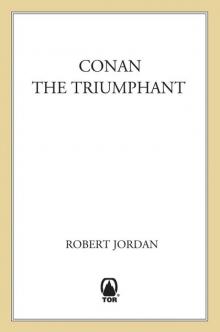 Conan the Triumphant
Conan the Triumphant The Eye of the World
The Eye of the World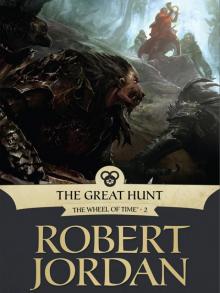 The Great Hunt
The Great Hunt Conan the Victorious
Conan the Victorious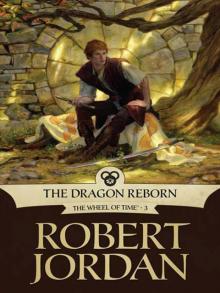 The Dragon Reborn
The Dragon Reborn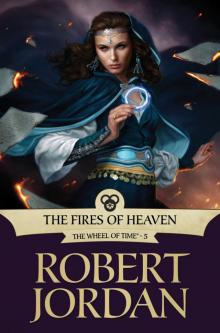 The Fires of Heaven
The Fires of Heaven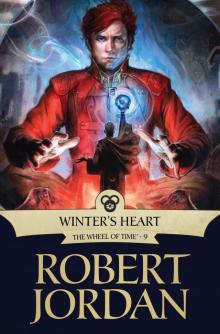 Winter's Heart
Winter's Heart Lord of Chaos
Lord of Chaos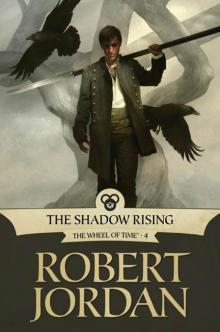 The Shadow Rising
The Shadow Rising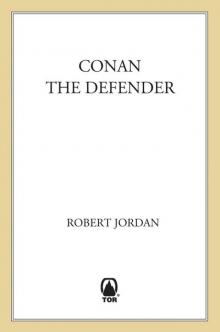 Conan the Defender
Conan the Defender The Strike at Shayol Ghul
The Strike at Shayol Ghul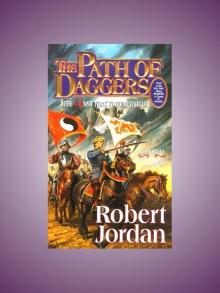 The Path of Daggers
The Path of Daggers A Memory of Light
A Memory of Light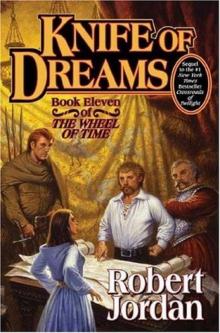 Knife of Dreams
Knife of Dreams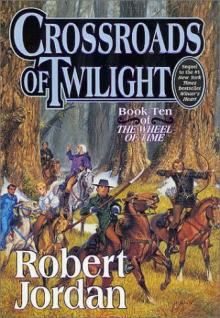 Crossroads of Twilight
Crossroads of Twilight Conan the Invincible
Conan the Invincible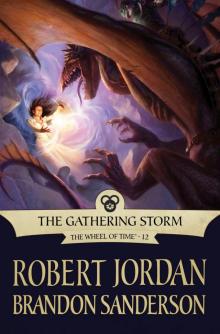 The Gathering Storm
The Gathering Storm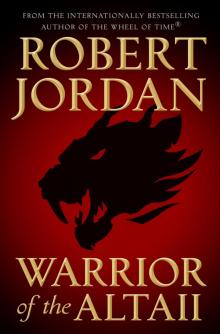 Warrior of the Altaii
Warrior of the Altaii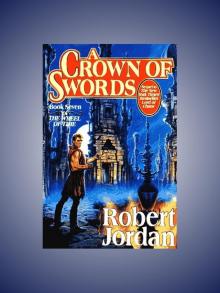 A Crown of Swords
A Crown of Swords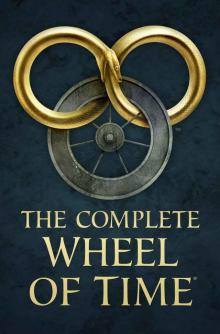 The Wheel of Time
The Wheel of Time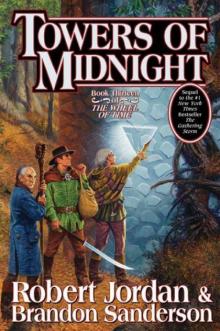 Towers of Midnight
Towers of Midnight Conan Chronicles 2
Conan Chronicles 2 Conan the Magnificent
Conan the Magnificent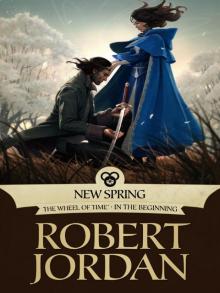 New Spring
New Spring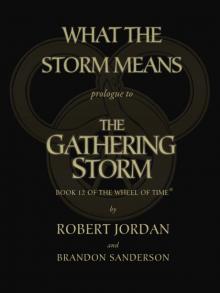 What the Storm Means
What the Storm Means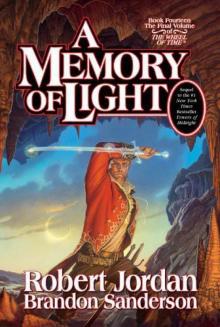 A Memory of Light twot-14
A Memory of Light twot-14 New Spring: The Novel
New Spring: The Novel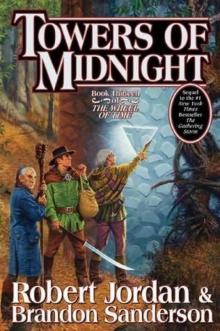 Towers of midnight wot-13
Towers of midnight wot-13 A Memory Of Light: Wheel of Time Book 14
A Memory Of Light: Wheel of Time Book 14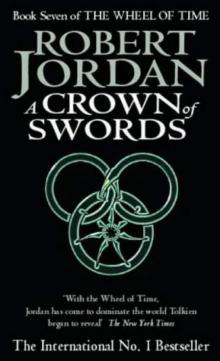 A Crown of Swords twot-7
A Crown of Swords twot-7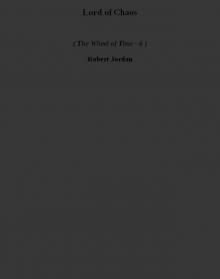 Lord of Chaos twot-6
Lord of Chaos twot-6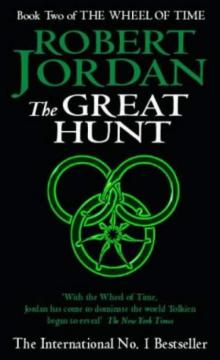 The Great Hunt twot-2
The Great Hunt twot-2 The Shadow Rising twot-4
The Shadow Rising twot-4![Wheel of Time-11] Knife of Dreams Read online](http://i1.bookreadfree.com/i1/04/03/wheel_of_time-11_knife_of_dreams_preview.jpg) Wheel of Time-11] Knife of Dreams
Wheel of Time-11] Knife of Dreams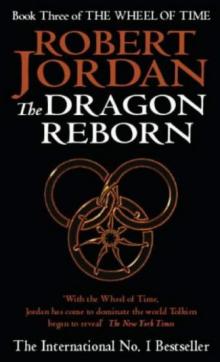 The Dragon Reborn twot-3
The Dragon Reborn twot-3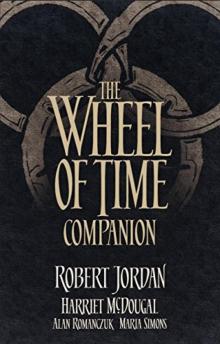 The Wheel of Time Companion
The Wheel of Time Companion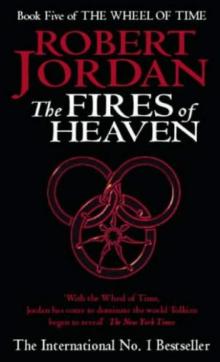 The Fires of Heaven twot-5
The Fires of Heaven twot-5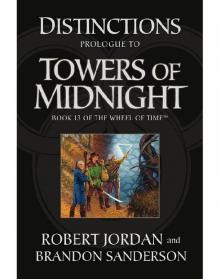 Prologue to Towers of Midnight
Prologue to Towers of Midnight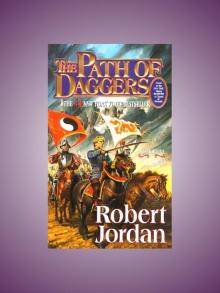 The Path of Daggers - The Wheel of Time Book 8
The Path of Daggers - The Wheel of Time Book 8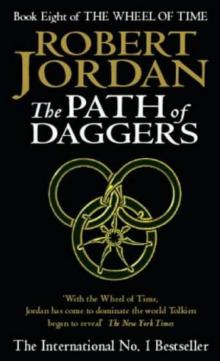 The Path of Daggers twot-8
The Path of Daggers twot-8 By Grace and Banners Fallen: Prologue to a Memory of Light
By Grace and Banners Fallen: Prologue to a Memory of Light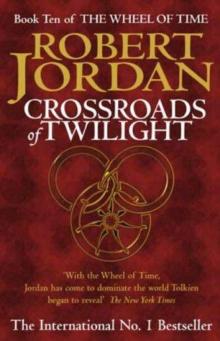 Crossroads of Twilight twot-10
Crossroads of Twilight twot-10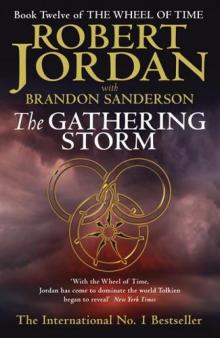 The Gathering Storm twot-12
The Gathering Storm twot-12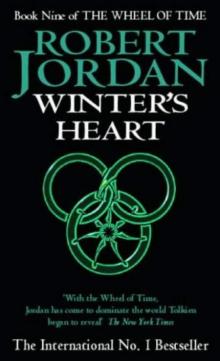 Winter's Heart twot-9
Winter's Heart twot-9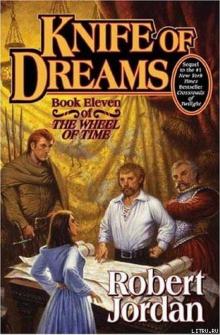 Knife of Dreams twot-11
Knife of Dreams twot-11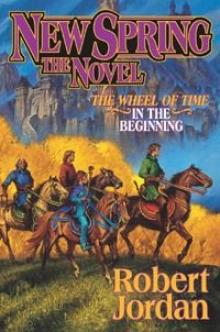 New Spring: The Novel (wheel of time)
New Spring: The Novel (wheel of time)